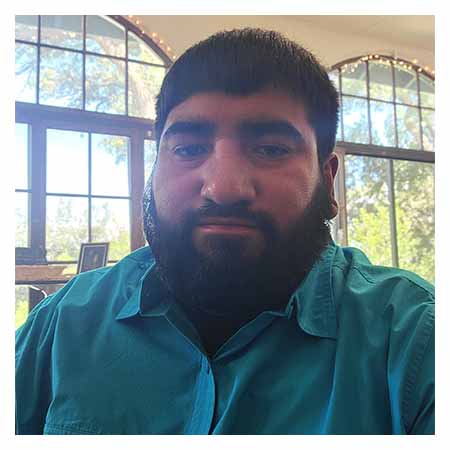Treatment for a Patient with Bulky Nasal Polyps Eroding the Skull Base
 Alex Serna started losing his sense of smell gradually, and by early 2020, it was completely gone. Over the same two-year period, he developed a constant headache and his face progressively became misshapen.
Alex Serna started losing his sense of smell gradually, and by early 2020, it was completely gone. Over the same two-year period, he developed a constant headache and his face progressively became misshapen.
“I’m not a big complainer, so I didn’t think anything of it, but my dad noticed that my face had changed and told me I should get it checked,” says Serna, who is 28. “Eventually, I had a nasal polyp that grew so large it was coming out of my nostril.”
A resident of Banquete, Texas, he saw an otolaryngologist in Corpus Christi, located about 30 minutes from his home. After seeing Serna twice in March 2022, the local physician referred him to Martin J. Citardi, MD, professor and chair of the Department of Otorhinolaryngology-Head and Neck Surgery at McGovern Medical School at UTHealth Houston. Serna first saw Dr. Citardi on March 28, 2022. After reviewing the results of an MRI scan, the rhinologist prescribed medications to help reduce the size of Serna’s nasal polyps.
“By then, I had zero air coming in and out through that nostril, and Dr. Citardi wanted to open my nose enough so that I could start removing debris,” Serna says. “Over about a month, the polyps had shrunk enough so that I could start clearing out my nasal passages, but I still couldn’t get enough air through my nose to breathe normally.”
Serna had allergic fungal rhinosinusitis, a distinct type of chronic rhinosinusitis with nasal polyps associated with high sensitivity to airborne fungal allergens. “The polyps were so large that they had eroded the skull base, essentially melting into it,” says Dr. Citardi, Memorial Hermann Chair at McGovern Medical School. “When sinuses fill up with polyps, they retain secretions and become swollen, filled with eosinophilic mucin. As they expand, they start dissolving away the bone that separates the sinuses from the eye socket and the brain. The treatment for the condition is surgery in which we open the sinuses and clean out everything.”
Dr. Citardi communicated regularly with Serna through a smartphone app, until Serna drove to Houston for surgery on May 13, 2022. “When I woke up after the surgery, I could breathe, the swelling was gone, and my face had almost gone back to normal,” he says.
Two weeks later, he was back in Dr. Citardi’s office for a follow-up visit. “Everything was draining well, and Alex had no fungus,” the rhinologist says. “Many patients need oral steroids following surgery. To avoid having to use oral prednisone or the newer, more expensive biologics, we placed a mometasone nasal implant to reduce the recurrence of nasal polyps after surgery.”
Serna describes his experience with Dr. Citardi as “Amazing. I had let things go for so long that my situation seemed pretty grim,” he says. “For the first three weeks after surgery, I wasn’t allowed to strain myself, but otherwise, my recovery was fast and great.”
Dr. Citardi adds, “Alex has done very well. Now at about one year from surgery, his only medication is topical steroids and his sinuses look nearly perfect.”